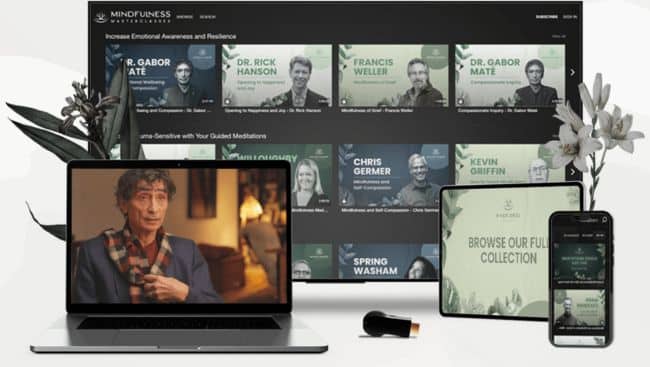In quiet moments of self-reflection, we often find ourselves asking big questions like: Why am I here? What do I have to contribute? What is my unique purpose and role to play? The search for meaning in life is universal, a desire to feel that what we do holds significance and impact. It’s a quest that transcends cultural, geographical, and individual differences, running through humanity as a common thread.
Finding meaningful work is a part of the path. Many of us spend a significant portion of our adult lives at work, whether in professional settings or more personal ones. To find meaning then, we must explore how our work lives contribute to the story of who we are and what we have to share with the world.
But why is it important? Research shows that positive psychological outcomes are a result of engaging in meaningful work, including associations with well-being and life satisfaction. Meaningful work also has the potential to enhance motivation, performance, and commitment to the work at hand.
So, if you are on a journey to discover greater purpose and fulfillment, may this guide to meaningful work help you better understand what you’re seeking and how you may find it.

Definition of Meaningful Work
How we define meaningful work may shift ever-so-slightly from person to person or culture to culture. This is because what brings meaning to each one of us varies. With that being said, there are some common threads of what provides meaning that transcend cultural and individual boundaries. Consider this meaningful work definition as a place to to start:
Meaningful work is any type of employment, activity, or work of service that holds personal significance, purpose, and fulfillment. It occurs when the work we are engaged with is aligned with our goals and values; and often, it is activity that contributes to the greater good.
Meaningful work cannot be defined nor confined by a specific job title or industry since what provides meaning to each individual is unique. What’s important is that each person on the path of contributing meaningfully feels a personal connection to what they’re doing and the impact that it has.
So, to deepen your embodied understanding of what makes work meaningful for you, take some time to reflect or journal about:
Benefits of Meaningful Work
Most of us can sense intuitively that there is great benefit in doing meaningful work. It provides us with a sense of connection to something greater than ourselves and gives our lives personal significance. It helps us to know that what we do matters.
There is research to confirm this embodied knowing that meaningful work is good for us. For example, studies on meaningfulness and work activity have found the following:
When the work we do holds meaning for us, the positive impacts will ripple into other areas of life as well. It’s not just a matter of feeling good at work. For example, well-being boosted at work is well-being boosted overall. It helps to paint a broader picture of what we’re here for.

Key Components of Meaningful Work
As noted earlier, the exact elements that make work meaningful will vary a bit for each one of us. However, there are some key components to meaningful work that often comprise the foundation of a fulfilling work experience:
1. Alignment with Personal Values
For something to be meaningful, it needs to be aligned with our core values. If we are doing work that goes against our values, our actions will lack authenticity and create inner conflict. Meaning comes when our actions are aligned with what we care about.
2. Positive Impact
Another common thread amongst various forms of meaningful work is that it has a positive impact. In one way or another, meaningful work contributes to the common good. This positive impact on the world helps us to see that our actions matter and that we can positively touch the lives of others.
3. Personal Autonomy
Research has found that autonomy is another component of meaningful work. Personal autonomy means that we have control over our work – that there is at least some degree of independence. This can provide us with a sense of ownership and empowerment around our work, which can contribute to personal meaning. Again, it can empower us to take action and make decisions around the things that matter most to us.
4. Mindful Reflection
One more key component of meaningful work is something that comes from within: conscious awareness of what we’re doing and the impact it has. In “What Makes Work Meaningful - Or Meaningless,” Catherine Bailey and Adrian Madden write:
“It was often only when we asked the interviewees to recount a time when they found their work meaningful that they developed a conscious awareness of the significance of these experiences.”
But we don’t have to wait to be interviewed in order to recognize the significance of what we do. By taking time to mindfully reflect on the impact our work has, we can cultivate a sense of meaning for ourselves. On the other hand, reflection might make us aware of the ways in which our work is not aligned with what we want to contribute, and we can take meaningful action on that discovery if needed.
Leadership and Organizational Culture
What role does leadership and an organization’s culture play in cultivating meaningful work? Interestingly, referenced in the MIT Sloan Management Review article referred to above, researchers noted that interviewees hardly mentioned leadership when describing meaningful moments at work. However, poor organizational management was the primary underminer of meaningfulness.
The research showed that meaningfulness could not be mandated, but employers could detract from their employees innate sense of meaningfulness. This suggests that meaning is truly something that comes from within but that our work environment can impact the degree to which we are able to experience meaning.
So what can an organization do to support their employees in feeling as though the work they do is meaningful? Possibilities include:
1. Fostering a Positive Work Culture
While meaning cannot be mandated, leaders within an organization can serve their employees by creating an environment that feels enriching to be in. This can include (but is not limited to) promoting open communication, respecting differences, and celebrating the value of each employee.
2. Providing Opportunities for Growth
We are all living, growing beings, and our path for contributing meaningfully will grow and shift as we do. Employers can serve their employees by providing opportunities for growth, enabling each individual to step into new roles and discover new ways of being of service to the world.
3. Encouraging Autonomy
Since autonomy is a key component of meaningful work, it’s important for employees to feel a degree of independence in their work. They should be encouraged to make their decisions based on their own wisdom. This can lead to feelings of empowerment and also a sense of trust.
4. Aligning Personal and Business Values
Though it’s not possible for a workplace to be everything for everyone, organizational leaders should get curious about what matters to their employees. What do employees value? What causes do they care about? As much as possible, an organization’s values should be aligned with employee values. If an employee-organization relationship does not feel like a good match, an open and honest discussion should be had to decide next steps.
5. Contributing to the Collective Good
Ultimately, an organization needs to consider what impact they’re having on the world. It’s not enough to say the right things for public appearance. Employees will sense if what an organization says about who they are is different from what their actions suggest. The question of meaning and impact should be explored at all levels within the organizational structure.

How to Find Meaningful Work
If you’re looking to find more meaning in the work that you do, there are a number of steps you might take. Consider the following ideas as places to start:
1. Explore Your Values
We sometimes rush through life without taking pause to consider our values. Make time and space to sit with what really matters to you. What do you care about? What do you want to live by? Get curious about where you’re currently aligned with your values and where you’re not.
2. Create a Personal Mission Statement
Based on what you value and what impact you want to have on the world, you can consider creating a personal mission statement. This can serve as a guiding light as you move through your work life, helping you to align your actions with your intrinsic values.
To provide some examples, personal mission statements may sound something like:
3. Reflect on the Positive Impact You Already Make
Take time to consider the ways that you’re already making a positive difference in the world or that you’re already living by your values. Where can you find meaning in what’s already here and happening? Know that your ‘work’ is not limited by what you do in a professional sense. It also includes the ways you contribute to your family and broader community.
4. Consider New Roles and Possibilities
If you’re in a work situation that is simply not aligned with your values and higher goals, it may be time to consider new roles, organizations, and possibilities. Start to dream about other ways and places you could contribute in a more purposeful, aligned way. Put one foot in front of the other to explore how you can branch out from where you presently are.
5. Connect with Like-Minded Individuals
Seek out and connect with individuals who share similar values and vision. Building a community of like-minded individuals can provide support, inspiration, and insight. Here are some examples of ways you might do this:
6. Seek Out Small, Meaningful Opportunities
You don’t have to quit your job to find meaning. In some cases, that’s just not practical or reasonable, even if it may be needed in the long-term. In the meantime, consider a project or volunteer opportunity that would feel good for you to partake in. For example, you might volunteer at your local animal shelter or start writing a children’s book you think could positively impact the world. Start dreaming, knowing that big things start with small steps.
Challenges and Barriers
It’s important to note that finding meaningful work is not always an easy or straightforward path. In fact, there are many challenges and barriers that can make it difficult for us to align our personal values and vision with our professional work.
Challenges and barriers can be either external or internal. External barriers can include things like organizational constraints, societal norms and pressures, and economic or financial pressures. Internal barriers include things like fear of change, self-doubt, not wanting to step outside of one’s comfort zone, and a lack of clarity.
Being mindful of these challenges and barriers is the first step to overcoming them. Once we’re aware of what may be holding us back, we can reflect and strategize around what options are available to us. Change may not happen right away, but if we can view our life story as a journey, we may find patience to allow it to blossom in its time.
Conclusion
If you’re on the search for meaningful work, rest assured you are not alone. Finding meaningful work can be a challenge in this modern world, but it’s not impossible. It begins by getting curious about what matters to us and considering the unique role we are being called to play.
Consider the places where you’re being called to either reflect or to act – and know that a meaningful work life is possible for each one of us. Honor your unique, ever-unfolding journey as you write a life story that is only yours to write.












